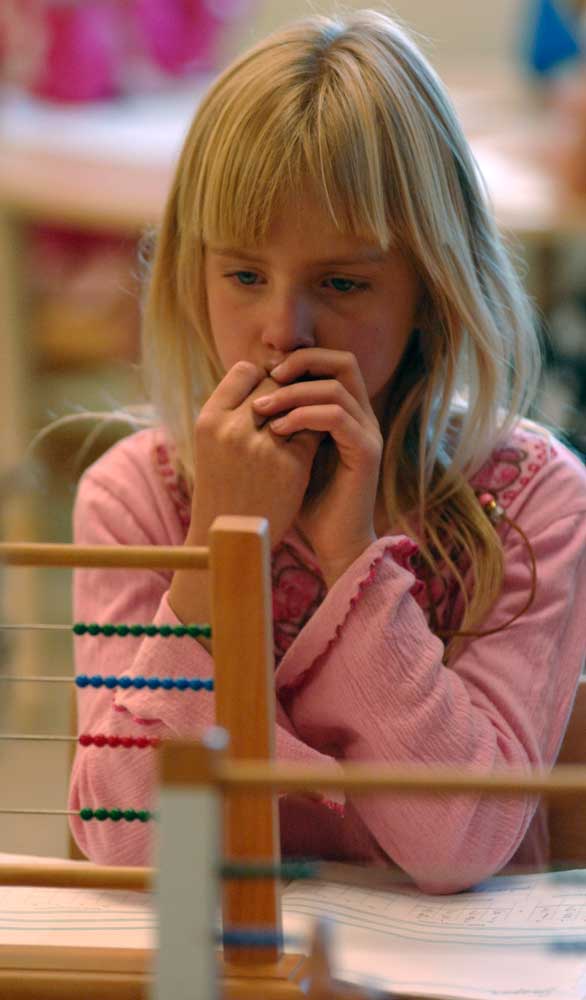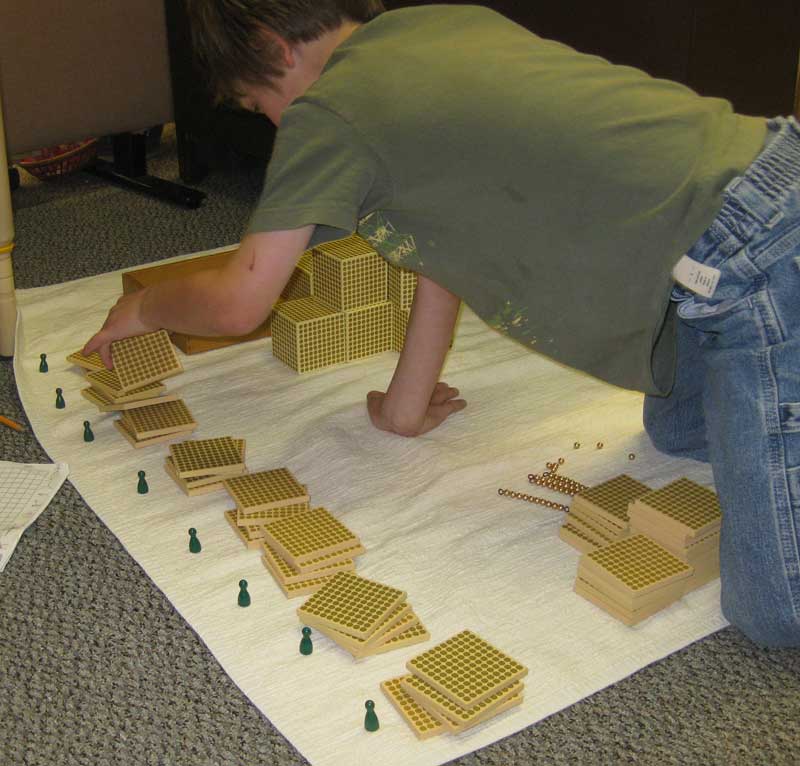Teacher-perspective matters, of course, but the distinctions can be subtle. Check out this example:
I received a question from a teacher who had removed the math cards containing answers on the back from her shelves. Why? She said the students were “cheating” and she couldn’t get the students to change their behavior. They had talked about honesty, etc. but the cheating continued. The following is my response to her…which is followed by a brief reflection…
In my classes, we taught the students how to record their process which was most easily accomplished with just one problem per day. When the students brought their work to “check” I slowly worked through the problem out loud to see if what they had written worked out…not to catch them, but to demonstrate the process. It was my goal to communicate a teacher-perspective that was encouraging. (EX: Let’s see what you’ve got here….It looks like you multiplied 3 X 4. Is that what you did? What is 3 taken 4 times? Looks like you wrote a 4? What did you mean? …) When something didn’t add up, then it became the teachable moment. I sent them back to the drawing board, so to speak, to see if they could figure out the challenge.

Getting the answer wasn’t the point, so in time, the students stopped doing that. (“cheating”) Yes, we had students who tried to take a short-cut, but that was usually because they didn’t understand something. My job was to unearth where the disconnect was so I could help them through it. For some students it took longer than others to realize that the answer really didn’t matter as much as how they arrived at AN answer. If my teacher-perspective had been “cheating,” maintaining that curiosity would have been much more difficult for me, and the student would likely have failed to feel like trying.
IMHO (and I hope you will not take offense), when we remove the works from the shelf, it can be perceived as taking control or holding the power. I felt like my primary role in the classroom was to be a model for handing over power to the child. Children will freely give you the power or do their best to force you to take it by their mischievousness.
Setting limits, I felt, were to give the student the power to control themselves…not so much as punishment. How you frame it makes all the difference! I hope this makes sense…
An “Accepting” Teacher-Perspective Aids Growth
The gift of Montessori education is helping the child to grow through a particular period of development so they will be best prepared for what is to come. Learning math processes is only important as a tool for solving some sort of problem: learning to reason, think through, gain understanding. Isolated problems on a page don’t really inspire that sort of learning.
When the short-cuts are taken, perceiving them as cheating bears shame. When we punish or take away the source of the “crime,” we help children to internalize their “wrongness” or inability to self-regulate. We hold them in a place of guilt.

To combat my own inclination to punish, I did my best to connect error to positive experiences. Sometimes I thanked a student out loud for showing me a new way to think about a problem, or for showing me what they didn’t understand because it made my work as a teacher easier when I understood them. I tried, not always successfully, to accept the behavior as a clue to something deep inside that needed to be worked out. It took patience (with myself as well as with the child) and curiosity, rather than quick judgment. Judgment always needed to be there to analyze, but assuming my judgments were correct after only an instant of contemplation kept me from seeing deeply into the situation. It took a commitment to changing my ingrained perspectives: a commitment to transformation that is continual and never-ending…REALLY!
How do you get math practice to connect to real world math problems? This is a challenge for another musing, but I’ll leave you with this: Opportunities are around us every day…building a bird house or a tree house; baking a cake or a half a cake or five cakes to share; sewing a shirt from start to finish; or growing your food. Math was an invention of humans to solve real problems…somewhere along the lines we humans decided to take a short-cut and make it about memorization and getting right answers.
